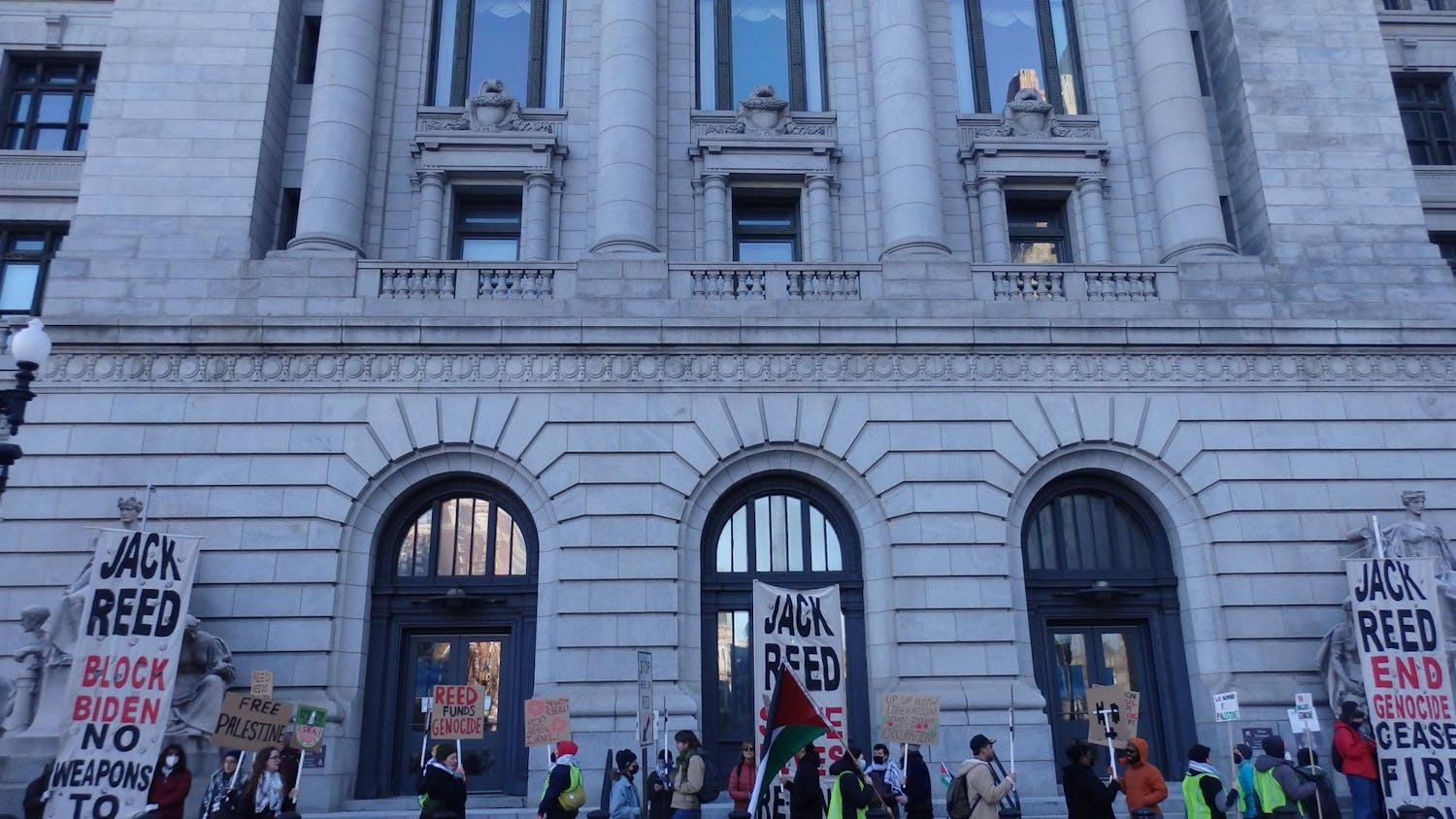Updated April 24 at 8:20 p.m.
The Providence City Council unanimously passed the initial vote of the Community Safety Act Thursday night at Providence City Hall, with 12 city council members voting yes and three city council members absent. The ordinance seeks to prohibit racial profiling in policing and rehabilitate the Providence police’s relationship with the community. Its passage marks the culmination of three years of work between community activists, elected representatives, business owners and lawyers. The second and final round of voting will take place April 27, according to the CSA Facebook page.
Major provisions of the CSA include a full ban on racial profiling by the police, a rule that traffic violations may not be used as basis for search or arrest and a requirement that police publicly disclose the criteria by which individuals are added to the city’s “gang” list and provide procedures for those on the list to appeal to have their name removed. The ordinance passed with an amendment that will track the implementation of the CSA by police stations. That ordinance also found unanimous approval.
“This is not the time for kicking the can down the road,” said Mary Kay Harris, a city council member, before the vote took place. She urged her fellow members to vote in favor of the measure. “We have the responsibility of ending racial and discriminatory profiling. We have the responsibility of ensuring people are treated with dignity and respect.”
With the CSA, the “community came to us with what they saw as a problem, but they didn’t just throw rocks at the problem,” said Kevin Jackson, another city council member. The city council had held two public hearings on the CSA, and public testimony on the ordinance has leaned “overwhelmingly in favor,” Jackson said. “There’s been discussion with anyone and everyone that wanted (to be at) the table.”
“I want to thank the Providence Police department and their families,” said Councilman Nicholas Narducci. His comment was met with applause from the part of the room where members of the Providence Fraternal Order of Police — the providence police union — sat.
Councilman Ryan Principe also thanked the police department and added that the CSA would serve the Providence Police as well, because the act offered a standardized policy on police conduct that would guide their work in the field.
Spectators overflowed the chamber as the meeting came into session, 45 minutes before the CSA was even introduced. Observers held signs above their heads reading “Police accountability now” and “Pass the Community Safety Act”. When the ordinance passed, the crowd broke out into applause and cheers before initiating a chant of “Whose city? Our city”.
The Fraternal Order of Police filed out of chambers immediately after the CSA passed. Though the Providence Chief of Police has endorsed the CSA, the Fraternal Order of Police opposes the ordinance, The Providence Journal previously reported. The Fraternal Order of Police did not reference any specific provision of the ordinance as reason for their opposition, but argued that the ordinance will not ameliorate but rather exacerbate tensions between the city and the police department, the Journal reported.
Community members expressed more enthusiasm for the ordinance.
“I just think it’s exciting that we’re creating one of the most comprehensive municipal” ordinances on racial profiling in the country, said Kodei Ishihara, who lived in Providence for 15 years before relocating. Though the CSA took three years to pass, debate in Providence around police misconduct goes back 30 years, Ishihara said.
“It’s taken many groups to work together, and that’s what’s important,” said Anne Landis, a teacher at the Moses Brown School in Providence. Deliberations around the CSA brought to light the disparate treatment of people of color in Providence by police versus what “white people on the East Side” experience day to day, she said.
“I’ve been with the CSA since the beginning,” said Kimberly Dy, a member of the main team that crafted the ordinance, adding that seeing the CSA finally pass had left her “speechless.” Reforms to the gang database and the language access provision — which ensures that individuals for whom English is a second language will be given a qualified interpreter before police questioning begins — are two points of the CSA that she found particularly impactful. “It hits home for me,” she said. For her, the three-year process of crafting the CSA has “been a hell of a fight.”
Correction: A previous version of the article misstated that the Community Safety Act passed unanimously in City Hall Thursday. In fact, the CSA only passed its first round of voting. The Herald regrets the error.

ADVERTISEMENT




